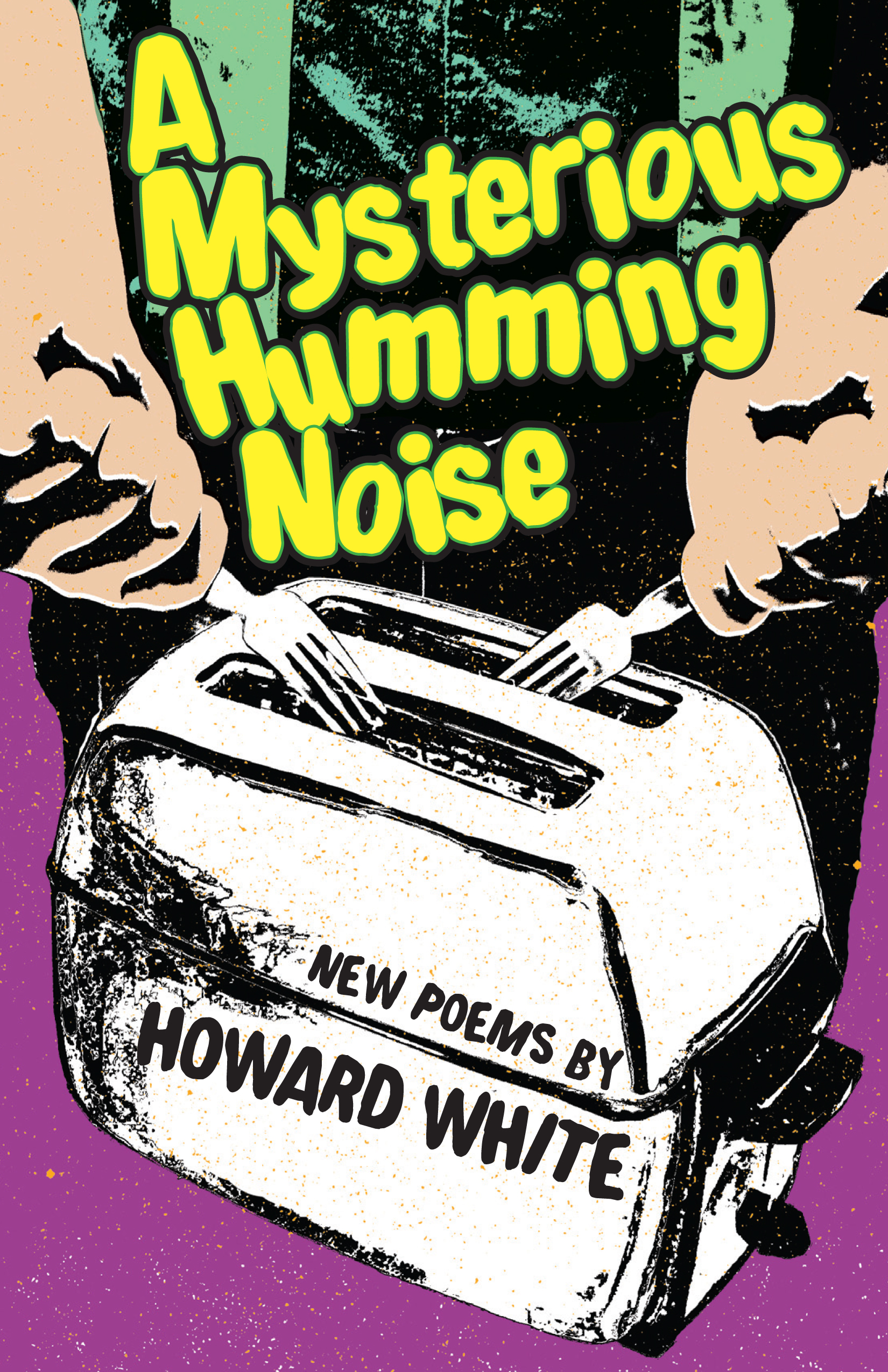
By Howard White
Howard White says, “Some poets try to capture rare butterflies in their writing. The things I go after are more like houseflies.” The comparison does him no favours but it is true inasmuch as his writing is notably unpretentious and concerned with common and everyday realities. That is, if your everyday realities include such things as sinking docks, driving bulldozers, arguing about sand, baseball, pouring without a funnel, dancing in the street, thought guns, coition, brainfarts, not sending sympathy cards, not shooting your father, and sea otters. In this book he also writes quite a bit about writing, not so much the kind of personal writing he does in this book so much as that he has done as an “accidental chronicler” for “a galaxy of voices” he acted as a “conduit” for in his work as a memoirist and publisher.
It’s hard to read a White poem without cracking a half-smile, and if there is one thing that holds his remarkable mental meandering together it is humour. You can see why they gave him the Leacock Medal: he seems incapable of writing a line that humour doesn’t sneak into.
PRAISE FOR WHITE’S POETRY:
“His work is as refreshing, as spirited and melodious as a vibrant April shower. White’s style is always crisp, fresh and ebullient.”
— Vancouver Sun
“Howard White is a pure delight to read.”
— Calgary Herald
“White’s is a major coastal voice… the best of his work is about seeing.”
— Victoria Times-Colonist
Howard White was born in 1945 in Abbotsford, British Columbia. He was raised in a series of camps and settlements on the BC coast and never got over it. He is still to be found stuck barnacle-like to the shore at Pender Harbour, BC. He started Raincoast Chronicles and Harbour Publishing in the early 1970s and some of his other books include The Men There Were Then, The Sunshine Coast, Patrick and the Backhoe and The Airplane Ride. His selected works, Writing in the Rain, won the Stephen Leacock Medal for Humour. He has also been awarded the Order of BC and the Order of Canada. His previous book of poetry, Ghost in the Gears, was a finalist for the Dorothy Livesay Prize.